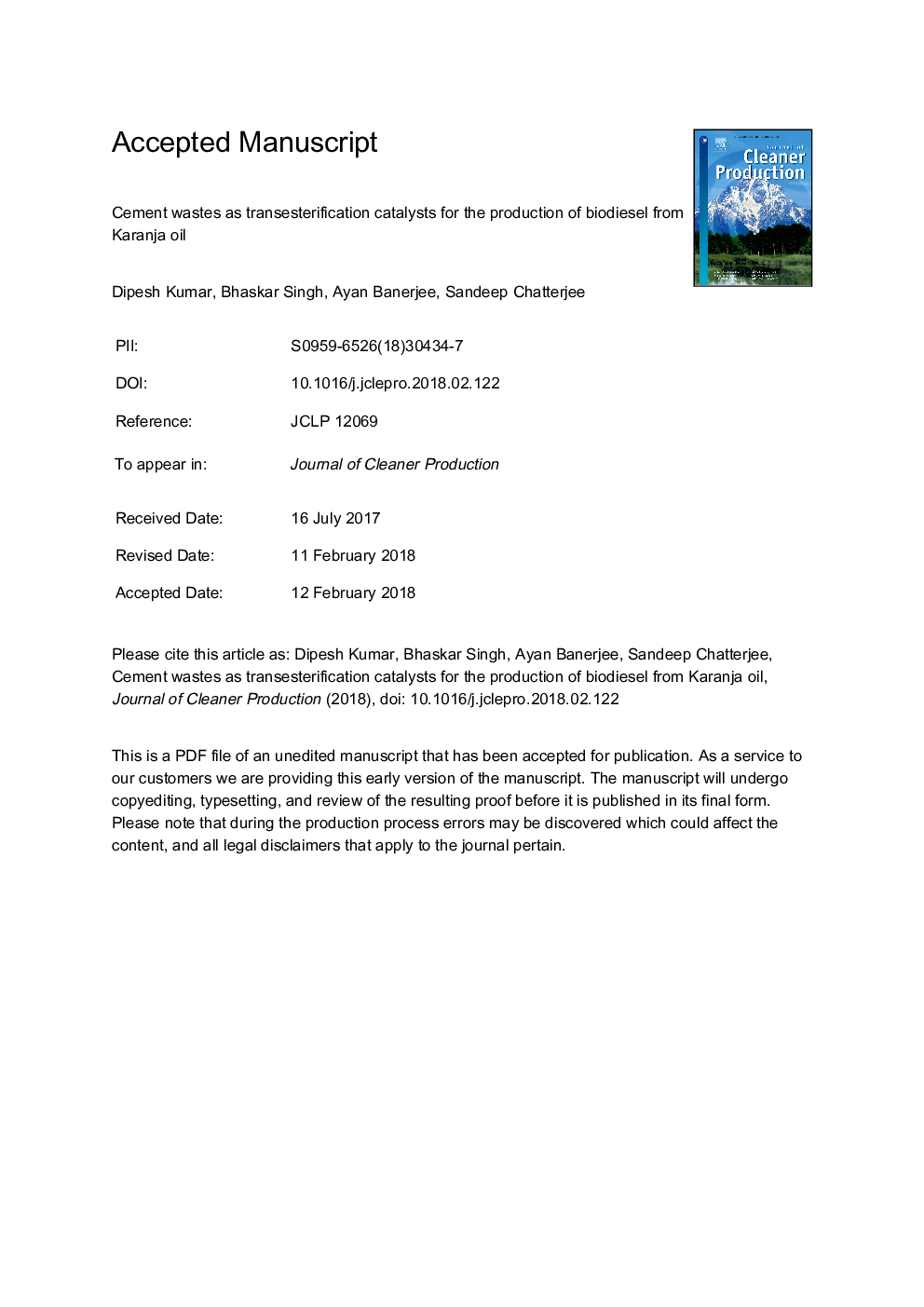| Article ID | Journal | Published Year | Pages | File Type |
|---|---|---|---|---|
| 8096922 | Journal of Cleaner Production | 2018 | 39 Pages |
Abstract
Construction and demolition waste materials such as concrete and mortar have limited reuse and recycling, and as a result, are accumulating in landfills. In this work, the utility of concrete and mortar waste materials as transesterification catalysts for the production of biodiesel from non-edible Karanja oil has been investigated. Locally collected concrete and mortar were washed thoroughly, dried, ground, sieved and calcined at 850â¯Â°C for 3â¯h before their use as transesterification catalysts. These materials were characterised by using X-ray diffraction, Fourier transform infrared spectroscopy and Hammett basicity indicator methods. The basic strength of the calcined materials (15.0â¯>â¯H_â¯â¥â¯10.1) was found to be higher than the uncalcined materials. The catalytic activity of cementitious waste materials has been compared with that of cement and commercial grade CaO. Among all cementitious materials tested, cement was found to be the most efficient (76â¯Â±â¯0.3%) in the transesterification of Karanja oil to biodiesel. The experimental results were used to conduct an economic analysis of a 50â¯kt biodiesel production facility using cement as a heterogeneous catalyst. The final manufacturing cost of biodiesel was estimated to be $1.23â¯kgâ1.
Related Topics
Physical Sciences and Engineering
Energy
Renewable Energy, Sustainability and the Environment
Authors
Dipesh Kumar, Bhaskar Singh, Ayan Banerjee, Sandeep Chatterjee,
